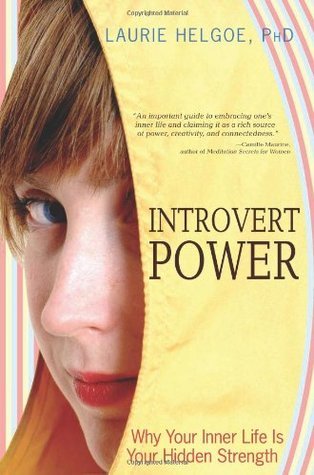What do you think?
Rate this book


EMBRACE THE POWER INSIDE YOU
Are you an introvert? Psychologist and introvert Laurie Helgoe reveals that more than half of all Americans are. Introverts gain energy and power through reflection and solitude. Our culture, however, is geared toward the extrovert. The pressure to enjoy parties, chatter, and interactions can lead people to think that an inward orientation is a problem instead of an opportunity.
Helgoe shows that the exact opposite is true: Introverts can capitalize on this inner source of power. INTROVERT POWER is a groundbreaking call for an introvert renaissance, a blueprint for how introverts can take full advantage of this hidden strength in daily life. Supplemented by the voices of several introverts, Helgoe presents a startling look at introvert numbers, influence, and economic might.
Revolutionary and invaluable, INTROVERT POWER includes ideas for how introverts can learn to:
Claim private spaceQUIET IS MIGHT. SOLITUDE IS STRENGTH. INTROVERSION IS POWER.
256 pages, Paperback
First published July 1, 2008